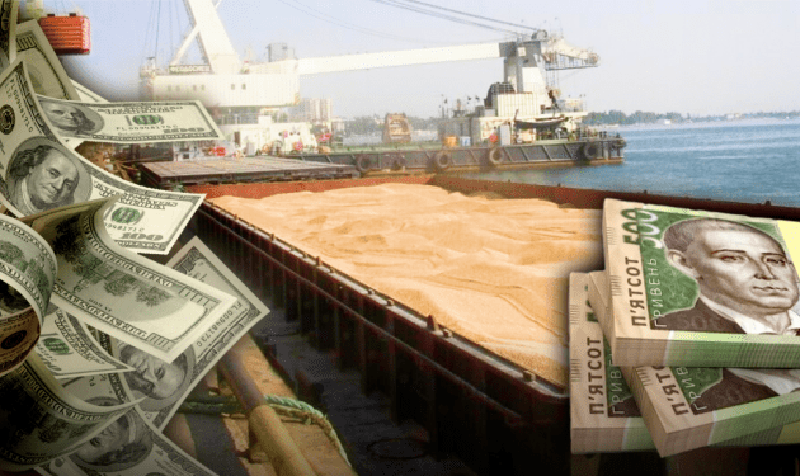Что влияет на валютный рынок в ноябре и будет ли доллар дорожать


В ноябре в НБУ сообщили о снижении объема золотовалютных резервов. Это произошло из-за активных интервенций НБУ на межбанковском рынке, ведь Нацбанк активно выходил на рынок с предложением иностранной валюты, чтобы удовлетворить спрос. Готовится ли Нацбанк уменьшать продажу валюты и как будет вести себя валютный рынок в конце 2023 года.
В течение октября в Украине замедлялись темпы роста потребительских цен. В НБУ говорят, что это происходило, благодаря дальнейшему расширению предложения продуктов питания и сохранению устойчивой ситуации на валютном рынке. «Для удержания умеренной инфляции НБУ и в дальнейшем будет обеспечивать достаточную привлекательность гривневых активов и сохранять активное присутствие на валютном рынке», — сообщили в НБУ. Между тем, с 3 октября в Украине действует режим управляемой гибкости курса, который ввел НБУ постановлением от 2 октября 2023 года №121. Каким было влияние нового курсообразования на спрос на валютном рынке, почему Нацбанк уменьшил срок обязательного возврата валютной выручки до 90 дней и будет ли гривна девальвировать на межбанковском и наличном рынке?
Резервы сокращаются: сколько валюты продает Нацбанк
Как сообщили в Нацбанке, на 1 ноября 2023 года международные резервы Украины, по предварительным данным, составляли 38,97 млрд долларов. В октябре объем резервов сократился на 1,9%. Это объясняется интервенциями НБУ и долговыми выплатами Украины в иностранной валюте.
«Рост интервенций прежде всего обусловлено ситуативным увеличением спроса на валюту в первые дни перехода от фиксации курса к режиму управляемой гибкости курса. Так, со 2 по 6 октября чистая продажа валюты Национальным банком на валютном рынке составила, согласно балансовым данным, 1,15 млрд долл., почти половину этого объема НБУ продал в первый день действия нового курсового режима. В дальнейшем интервенции НБУ по продаже валюты стабилизировались до уровня, который наблюдался до момента перехода к управляемой гибкости курса», — говорится в сообщении регулятора.
«Падение резервов было ожидаемым. Дело в том, что ожидаемой внешней помощи не было, а значит НБУ был вынужден «сжигать» резервы, не имея возможности их восстановить. Напомним, что в октябре был переход к управляемой гибкости курса гривны. В результате чего интервенции НБУ в октябре оказались крупнейшими за весь год — 3,33 млрд. долларов», — говорит финансовый аналитик Андрей Шевчишин.
Между тем, Антон Куринной, дилер департамента глобальных рынков ОТП Банка, тоже уверен: снижение резервов НБУ напрямую связано с введением управляемой гибкости валютного курса, ведь из-за новых правил Нацбанк стремился избежать панических настроений, а потому продавал много валюты из резервов.
«Здесь есть прямая связь с введением гибкого курса и попыткой не дать панике охватить население из-за возможного сильного роста валюты. Поэтому НБУ укрепил гривну, но это все произошло за счет международных резервов, и мы считаем, что эта практика активного укрепления национальной валюты начнет меняться на обратную. То есть начнут менее активно расходоваться резервы. Если не будет «заходить» новая помощь от международных партнеров, то резервы могут медленно уменьшаться, но договоренность с партнерами есть, поэтому пока регулятор находится в комфортных условиях, позволяющих сдерживать ослабление гривны», — отметил Куринной в разговоре
Хотя НБУ укрепил гривну, но это произошло за счет международных резервов, и теперь существует вероятность, что гривна начнет постепенно девальвировать
Эксперты считают, что после всплеска спроса в октябре в течение ноября ситуация на межбанке должна стабилизироваться.
«Учитывая такой всплеск спроса в октябре, следует ожидать несколько меньший дефицит валюты в ноябре, а следовательно — и объем интервенций НБУ. Думаю, что по итогам этого месяца темпы сокращения ЗВР будут значительно меньше», — рассказала Фокусу Анна Золотько, директор департамента казначейских операций Юнекс Банка.
А по словам Тараса Лесового, начальника департамента казначейства Глобус Банка, с начала ноября на межбанке наблюдается доминирование предложения над спросом, что сразу сказалось на валютных курсах — они начали снижаться.
Эксперт назвал несколько основных причин того, что в ноябре на межбанке предложение валюты выросло, а спрос упал:
- вдвое сократился срок в возврате валютной выручки (со 180 до 90 дней для агроэкспорта);
- возможность «перетекания» валюты с межбанка на наличный рынок и наоборот;
- увеличение лимитов на приобретение валюты гражданами с ее обязательным размещением на депозитах (конвертационные депозиты);
- увеличение лимита продажи наличных на сумму остатков по состоянию на 13 апреля 2022 года;
- возможность граждан покупать безналичную валюту в банках в эквиваленте до 50 тыс. грн;
- опасения девальвации гривны побудило граждан запасаться валютой, потребность в которой сейчас значительно уменьшилась.
«Однако надо понимать, что рынок «живой», поэтому вполне возможно, что со временем произойдут изменения в соотношении спроса и предложения. Рынок не будет статичным. Регулятор может как увеличивать, так и уменьшать размер интервенций (на основе прошлых недель можем предположить, что шаг такого снижения или увеличения составит 50-60 млн долларов), таким образом, предоставляя больше «свободы» межбанку. Соответственно, и будет меняться текущий курс валют», — говорит Тарас Лесовой.
Антон Куринной отметил: в ноябре регулятор продал 950 млн долл. — это довольно стандартная средняя сумма интервенций ($400-500 млн в неделю). «На межбанковском валютном рынке Украины сейчас спрос стабилен», — говорит Куринной.
О стабилизации ситуации со спросом говорит также Анна Золотько. По ее словам, первая декада ноября существенно отличалась от классической картины октября: объем предложения существенно вырос, спрос ощутимо сократился. Поэтому потребность в интервенциях НБУ снизилась.
Учитывая всплеск спроса в октябре, следует ожидать несколько меньший дефицит валюты в ноябре, а затем — и на уменьшение объема интервенций НБУ
«В основном, это закономерный результат повышенных девальвационных ожиданий, возросших после смены курсового режима. Импортеры старались максимально ускорить контрактование новых партий товара, экспортеры, наоборот, сдерживали продажу выручки, надеясь на рост курса. Но его так и не произошло. В конце концов, в начале ноября на рынке увеличилось предложение валюты, а объем спроса несколько сократился. Поэтому на прошлой неделе был зафиксирован очень умеренный показатель недельных интервенций НБУ — $389 млн. Для сравнения, в среднем в течение этого года НБУ за неделю продавал на ВРУ $520 млн», — сообщила Анна Золотько.
Наличные доллары и евро: будет ли расти спрос населения на иностранную валюту
На наличном валютном рынке в середине ноября незаметно резких колебаний, ведь повышения спроса на наличные доллары нет. Эксперты говорят: ажиотажа нет, но разница между курсом межбанка и наличным курсом будет сохраняться и в дальнейшем .
«Наличность движется за межбанком, но довольно сдержанно и медленно, возможно, и немного искусственно, потому что и крупные игроки, и население придерживают валюту до новых социальных выплат (зарплаты работникам, социальная помощь и т.д.). Наличный рынок в дефиците гривневого ресурса, поэтому резкого роста мы не увидим. После движения на 37,5 грн/долл. курс отбился назад, на 37,75-37,8 грн/долл., в частности, из-за того, что и межбанк остановился на 36 грн/долл. и пошел сдержанно в обратную сторону. Скорее всего, наличный и безналичный рынок будут сохранять разрыв между котировками», — говорит Антон Куренной.
По мнению Анны Золотько, оснований ожидать роста наличного курса доллара пока нет. В частности, из-за доступной для населения опции покупать безналичную валюту через банковские приложения.
«Сильным сдерживающим фактором являются безналичные каналы покупки валюты населением. Здесь в последнее время наблюдается тенденция к усилению конкуренции между банками. Уже 47 учреждений из 64 платежеспособных банков предлагают клиентам купить безналичную валюту в пределах 50 тыс. грн. Это заставляет банки улучшать предложения для клиентов, снижая стоимость безналичной валюты. С одной стороны, это стимулирует все больше украинцев покупать валюту именно в безналичной форме, что направляет часть спроса с наличного рынка на безналичный. С другой, часть приобретенной таким образом валюты в конце концов оказывается на наличном рынке в виде предложения, ведь разница курсов даже позволяет немного заработать на таких операциях», — объяснила Анна Золотько.
О том, что хаотичных качелей курса на наличном рынке, вероятно, не будет в течение ноября, говорит и Тарас Лесовой.
«Наличный курс сейчас формируется с учетом межбанка с добавлением к курсу в среднем 1-1,5% от межбанковского курса. Соответственно, можно сказать, что хаотичные изменения на наличном рынке, оторванных от межбанка, вряд ли возможны. Увеличение возможностей для граждан покупать валюту (конвертационные депозиты, увеличение лимитов на приобретение наличных в банках и т.д.) в определенной степени удовлетворили спрос и держат наличные курсы на «обозримом» расстоянии от курсов межбанка. И со временем вполне возможно, что разница между безналичным и наличным курсами начнет сокращаться до 1-0,7%», — считает эксперт.
Экспортерам — меньше свободы: зачем Нацбанк решил сократить срок возврата выручки
В ноябре Нацбанк постановлением Правления Национального банка Украины от 10 ноября 2023 года №145 принял важное для валютного рынка решение сократить срок обязательного возврата в Украину валютной выручки со 180 до 90 дней. Соответствующее решение, по данным НБУ, призвано усилить дисциплину соблюдения субъектами внешнеэкономической деятельности предельных сроков расчетов по операциям по экспорту товаров и обеспечить возврат валютной выручки в установленные предельные сроки расчетов по отдельным операциям по экспорту товаров. Однако речь идет не обо всем экспорте, а только об агротоварах, ведь на уровне 90 дней установили предельные сроки расчетов по операциям по экспорту следующих товаров: пшеница, рожь, ячмень, овес, кукуруза, соя, рапс, семена подсолнечника, соевое масло и подсолнечное масло, рапсовое масло, жмых.
Опрошенные эксперты говорят — это решение появилось не на пустом месте. Ведь таким образом Нацбанк пытается ускорить возвращение в Украину средств экспортеров, то есть, наполнить валютный рынок долларами и евро, чтобы увеличить объем предложения.
«Во-первых, реализация такого решения можно считать важным элементом «насыщения» рынка валютой, чтобы предотвратить бесполезное «сжигание» валютных резервов НБУ. Во-вторых, помним, что действует режим «управляемой гибкости», который предусматривает в случае крайней необходимости «мягкое» вмешательство регулятора на безналичный рынок. Фактически, сокращение срока возврата валютной выручки — это одна из мер, принятых регулятором, чтобы увеличить предложение», — говорит Тарас Лесовой.
Нацбанк пытается ускорить возвращение в Украину средств экспортеров, что поможет наполнить валютный рынок долларами и евро, и, соответственно, увеличить объем предложения
По словам Антона Куринного, триггером для решения НБУ могли стать октябрьские тренды на межбанке, когда наблюдалось снижение объема предложения на рынке. «Но следует учитывать, что новые предельные сроки будут применяться к сделкам, заключенным после 11 ноября. Поэтому эффект от этого решения может быть заметен ближе к февралю», — предупредил эксперт.
В итоге, по мнению экспертов, сокращение срока возврата валютной экспортной выручки направлено, прежде всего, на увеличение предложения валюты на межбанке. А вот на укрепление курса гривны такое решение может и не иметь влияния.
«НБУ пытается уменьшить давление на резервы и сократить интервенции, особенно, в случае меньшего объема помощи от партнеров. Между тем, не ожидаю, что изменения поддержат гривну, скорее, они поддержат НБУ и резервы. А главный фактор — большой дефицит торгового счета и платежного баланса — будет держать девальвационные ожидания повышенными», — отметил Андрей Шевчишин.
Recent Posts
Сбежавший в Швейцарию блогер Станислав Домбровский просит прощения у украинцев
Одесский трэш блогер Стас Домбровский, который в последнее время проживает в Швейцарии, записал видеообращение к…
Александра Устинова и атака на руководство АОЗ: что стоит за волной критики
Александра Устинова, народная депутат, которая в последние дни активно атакует Агентство оборонных закупок (АОЗ) возможно…
Журналисты показали имение киевской судьи, закрывшей дело Приходько
Свобода "под ключ" или манипуляция правосудием? Борис Приходько – нацбанкир времен Януковича и действующий нардеп…
Судьи вне закона
В течение последних трех лет внимание общественности если и бывает приковано к судам, то гораздо…
Артем Ляшанов и bill_line спасают репутацию через суд
Финтех-компания столкнулась с обвинениями в отмывании денег игорной мафии. ООО «Тех-Софт Атлас» (ТМ «bill_line») и…
Криптобиржа WhiteBIT: как Владимир Носов и «регионалы» Шенцевы отмывают деньги и помогают спецслужбам России
Владимир Носов в Украине пытается позиционировать себя как респектабельный бизнесмен и хозяин криптобиржи WhiteBIT. Однако…


